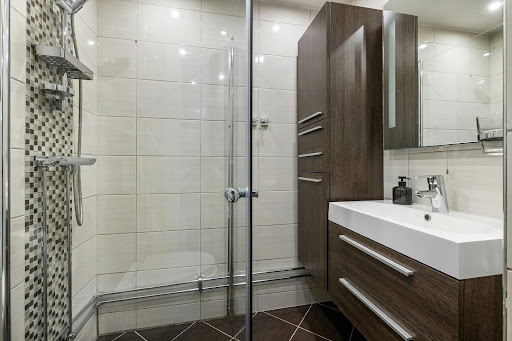When it comes to maintaining a comfortable home in Orange County, a functional water heater is non-negotiable. Yet, homeowners often overlook the health of their water heaters until problems arise. Recognizing the early signs of water heater troubles can save residents from the inconvenience of cold showers, high utility bills, and potential water damage.
Efficient Orange County water heater repair can address these issues, but prompt identification of the problems is key.
Orange County residents may notice a range of indicators signaling the need for water heater repair. Common signs include irregular water temperatures, discolored water, or unusual noises emanating from the water heater.
These manifestations are not just minor inconveniences but can also be precursors to more severe issues if left unattended.
Proactively seeking repair services when these signs appear helps extend the life of the water heater and ensures that it operates efficiently. Homeowners should be attentive to their water heater’s performance, as timely repairs can prevent further damage and avoid the cost of a full replacement.
Expert technicians in Orange County are equipped to handle water heater repairs, ensuring that residents can continue to enjoy the comfort of hot water in their homes.
Table of Contents
Common Indicators of Water Heater Failure
Any homeowner should be able to assess their water heater for these common indicators to determine if professional repair is necessary. Recognizing these signs early can lead to timely interventions by professionals in Orange County water heater repair.
#1 Inconsistent Water Temperatures
Inconsistent water temperatures are a hallmark sign that a water heater may be failing. If one experiences alternating hot and cold showers or inconsistent water temperature at faucets, it suggests a malfunction within the water heating system.
#2 Rust-Colored Water
Rust-colored water when one turns on the hot water tap indicates corrosion within the tank or pipes. Corrosion can contaminate the water supply and is a strong indication that the water heater may need repair or replacement.
#3 Water Leakage Around the Unit
Water puddles or signs of moisture around the base of the water heater suggest a leak. Leakage can be due to various issues, including a faulty temperature and pressure relief valve or corrosion in the tank.
#4 Unusual Noises From the Tank
- Popping or rumbling noises: Sediment buildup heating and bursting.
- Whining sounds: Scale on electric heating elements.
These noises imply that the water heater is operating inefficiently and may be on the brink of failure.
#5 Delayed Heating Response
When there is a noticeable delay in the time it takes for water to heat up, it often points to an issue with the water heater’s ability to function promptly. This lag in heating can result from sediment accumulation or malfunctioning components.
Repair or Replace: Making the Right Decision
Deciding between repair and replacement of a water heater is crucial for efficiency and cost-effectiveness. This decision can affect long-term utility costs, and homeowner satisfaction in Orange County.
Assessing the Age of Your Water Heater
The lifespan of a water heater typically ranges between 8-12 years. If a water heater in Orange County is nearing or beyond this age, it may be more cost-effective to replace it rather than incurring ongoing repair costs. Homeowners should check the manufacturer’s label for the unit’s production date.
Evaluating Repair Costs Versus Replacement Benefits
Cost of Repairs:
- Minor repairs such as replacing valves or thermostats might be economical.
- Major issues like a leaking tank signal it’s time for a replacement.
Replacement Benefits:
- New models are more energy-efficient, potentially lowering utility bills.
- Replacing an outdated unit can reduce the risk of sudden breakdowns and water damage.
A comparison of repair quotes against the cost of a new unit, including installation, should guide the decision between repairing or replacing a water heater.
Understanding the Advantages of Modern Water Heaters
Energy Efficiency:
- Newer models often have better insulation and more efficient heating elements.
Technology Upgrades:
- Modern water heaters may include features like WiFi connectivity for easier monitoring and control.
Selecting a more contemporary and efficient water heater can lead to long-term savings and improved performance. It’s also an opportunity to upgrade to a tankless model, which offers endless hot water and occupies less space.
When considering repair or replacement, homeowners must weigh these factors against the current state of their water heater to ensure they make the right decision for their home.





